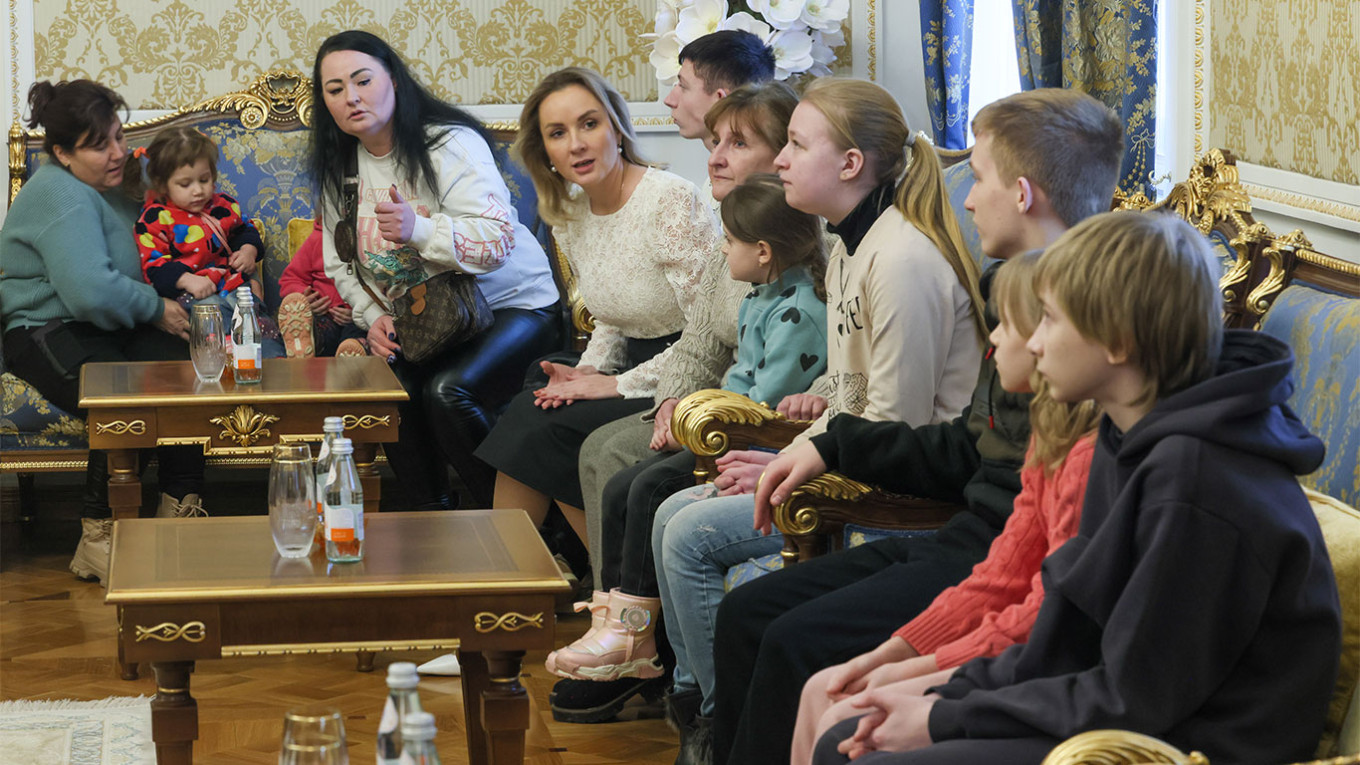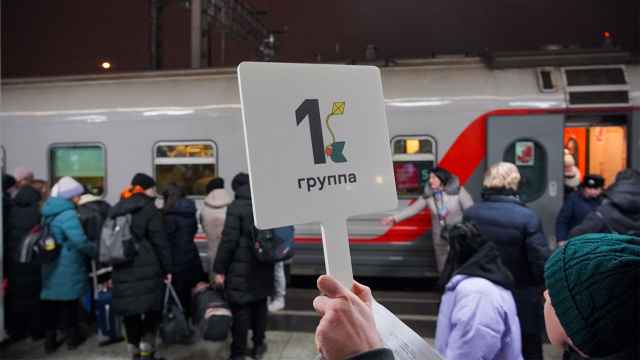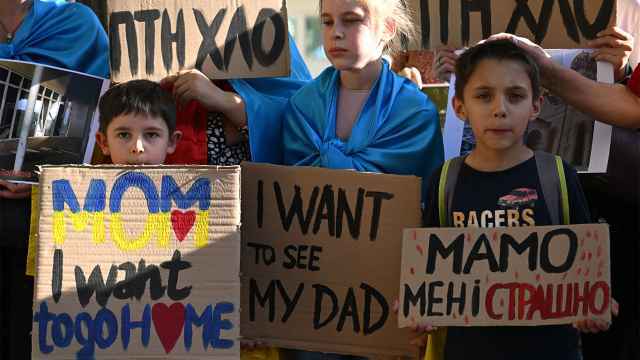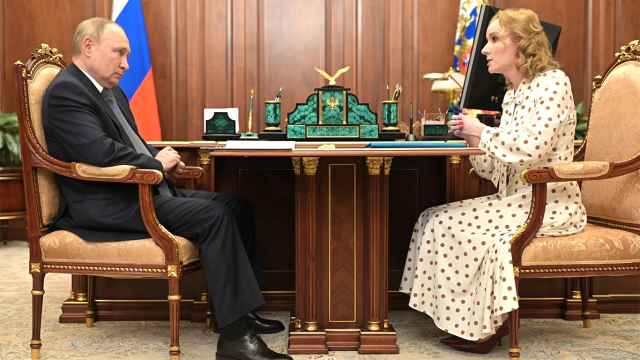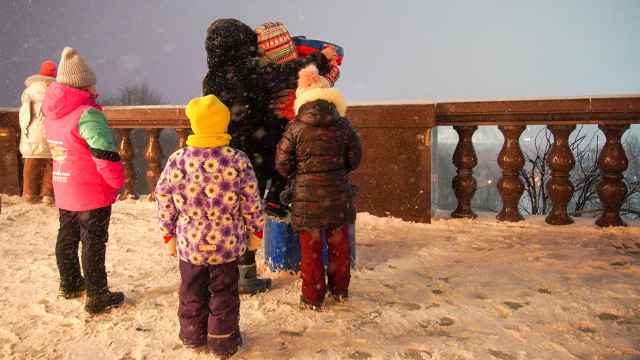Russia and Ukraine have for the first time held in-person talks to exchange children displaced by the war, Moscow's children's rights commissioner Maria Lvova-Belova announced Wednesday.
Forty-eight children are set to be exchanged under the deal agreed in Qatar, the state-run RIA Novosti news agency quoted Lvova-Belova as saying.
Qatar said it mediated the Russian-Ukrainian children’s exchange in response to requests from Moscow and Kyiv to explore potential areas of cooperation.
“As a result of the negotiations, we fixed in place a list of 29 children due to go to Ukraine and 19 to Russia,” said Lvova-Belova.
She gave no details on why the children were in Russian hands or where they had come from.
Lvova-Belova and President Vladimir Putin are wanted by the International Criminal Court over Moscow's transfers of Ukrainian children into Russia, which are considered a war crime. Russia, which is not a member of the ICC, insists the warrant against Putin is “void.”
Kyiv has said that around 20,000 children have been forced to move to Russia since Moscow invaded in February 2022, in what Ukrainian President Volodymyr Zelensky described as a “genocide.”
Lvova-Belova on Wednesday called this figure “fake” and said it dates back to the early period of Russia’s invasion of Ukraine, when the front line was constantly shifting, according to RIA Novosti.
The fate of the children has been highly sensitive in Ukraine since the war began two years ago.
Some of the children's parents were killed, while others were separated from carers by the fast-moving front lines at the start of the invasion.
Some were living in Ukrainian orphanages in areas Russia then occupied.
Ukraine says Moscow's forces illegally deported them to Russia, and accuses the Russian authorities of trying to wipe out their Ukrainian identity.
Teenagers that returned to Ukraine have said they were subjected to Russian patriotic education and made to praise the Russian army.
AFP contributed reporting.
A Message from The Moscow Times:
Dear readers,
We are facing unprecedented challenges. Russia's Prosecutor General's Office has designated The Moscow Times as an "undesirable" organization, criminalizing our work and putting our staff at risk of prosecution. This follows our earlier unjust labeling as a "foreign agent."
These actions are direct attempts to silence independent journalism in Russia. The authorities claim our work "discredits the decisions of the Russian leadership." We see things differently: we strive to provide accurate, unbiased reporting on Russia.
We, the journalists of The Moscow Times, refuse to be silenced. But to continue our work, we need your help.
Your support, no matter how small, makes a world of difference. If you can, please support us monthly starting from just $2. It's quick to set up, and every contribution makes a significant impact.
By supporting The Moscow Times, you're defending open, independent journalism in the face of repression. Thank you for standing with us.
Remind me later.


